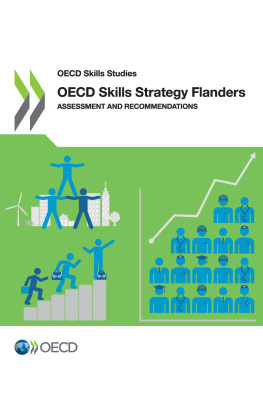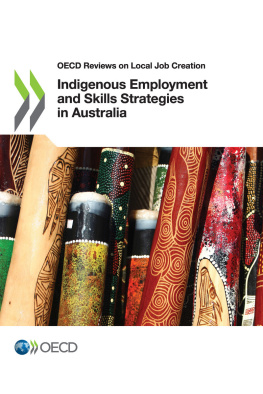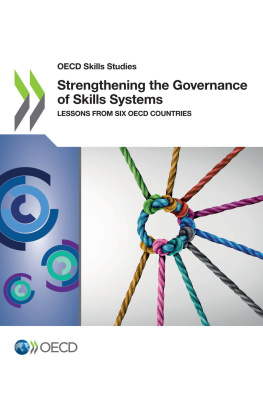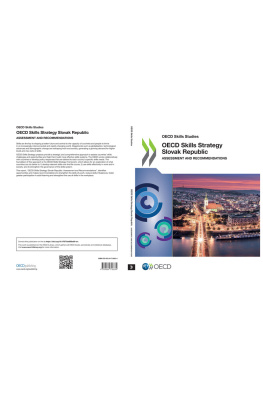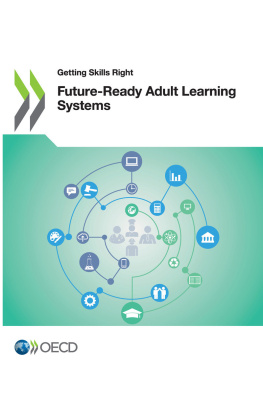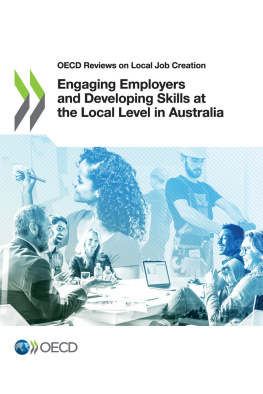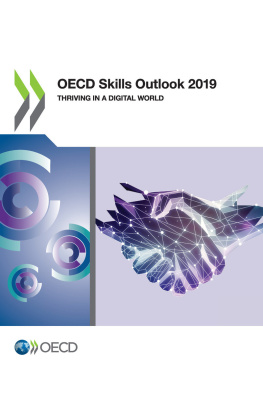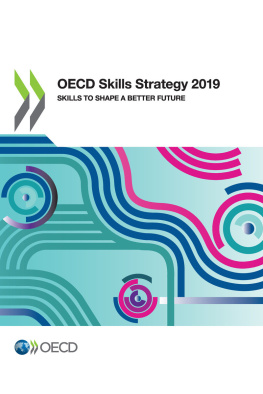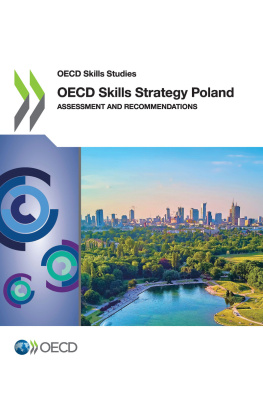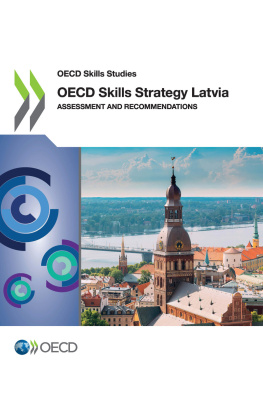OECD - Skills Matter
Here you can read online OECD - Skills Matter full text of the book (entire story) in english for free. Download pdf and epub, get meaning, cover and reviews about this ebook. year: 2019, publisher: OECD Publishing, genre: Politics. Description of the work, (preface) as well as reviews are available. Best literature library LitArk.com created for fans of good reading and offers a wide selection of genres:
Romance novel
Science fiction
Adventure
Detective
Science
History
Home and family
Prose
Art
Politics
Computer
Non-fiction
Religion
Business
Children
Humor
Choose a favorite category and find really read worthwhile books. Enjoy immersion in the world of imagination, feel the emotions of the characters or learn something new for yourself, make an fascinating discovery.
Skills Matter: summary, description and annotation
We offer to read an annotation, description, summary or preface (depends on what the author of the book "Skills Matter" wrote himself). If you haven't found the necessary information about the book — write in the comments, we will try to find it.
OECD: author's other books
Who wrote Skills Matter? Find out the surname, the name of the author of the book and a list of all author's works by series.
Skills Matter — read online for free the complete book (whole text) full work
Below is the text of the book, divided by pages. System saving the place of the last page read, allows you to conveniently read the book "Skills Matter" online for free, without having to search again every time where you left off. Put a bookmark, and you can go to the page where you finished reading at any time.
Font size:
Interval:
Bookmark:
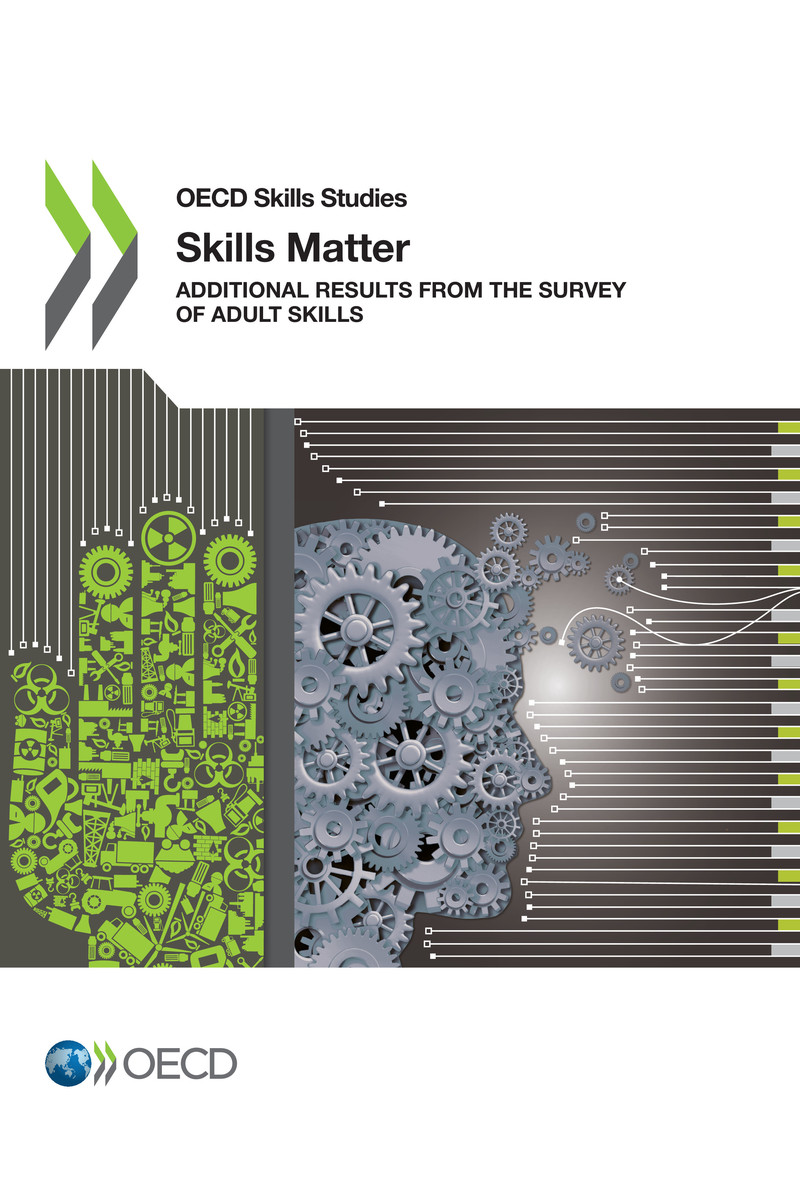
OECD (2019), Skills Matter: Additional Results from the Survey of Adult Skills , OECD Skills Studies, OECD Publishing, Paris, https://doi.org/10.1787/1f029d8f-en .
The labour market is in a flux, affected by the deep and rapid digital transformation, as well as globalisation and demographic changes. Employers are demanding new skills and qualified workers, while many people are looking for a job. Promoting a good match between the rapidly changing demand for skills with workers competences is crucial to harness the potential of these changes and ensure that no one is left behind. Governments need a clearer picture, not only of how labour markets are changing, but of how well-equipped their citizens are to participate in, and benefit from, increasingly knowledge-based economies. The Survey of Adult Skills, a product of the OECD Programme for the International Assessment of Adult Competencies (PIAAC), provides that picture. It captures information about adults proficiency in literacy, numeracy and problem-solving skills, and how much those skills are used on the job and throughout life.
Skills Matter: Additional Results from the Survey of Adult Skills expands on the data and analysis examined in Skills Matter: Further Results from the Survey of Adult Skills and in OECD Skills Outlook 2013: First Results from the Survey of Adult Skills . New data is included for six countries: Ecuador, Hungary, Kazakhstan, Mexico and Peru (that conducted the study for the first time) and the United States (that had previously collected data as part of the studys first round). The results show that poor skills severely limit peoples access to more rewarding and productive jobs. The distribution of skills across the population also has significant implications for how the benefits of economic growth are shared within societies. Put simply, where large shares of adults have poor skills, it becomes difficult to introduce productivity-enhancing technologies and new ways of working, which in turn stalls improvements in living standards and tends to widen income inequality. In all countries, adults with lower skills are far more likely than those with better literacy skills to report poor health, to be less involved in political processes and to have less trust in others.
The report also finds that acquiring relevant skills is certainly key, but may not be enough to integrate successfully in the labour market. Workers must be given the opportunity to use their skills productively, but also to reap some of the tangible and intangible benefits of skills proficiency (such as wages and productivity at work) that contribute to adults general well-being.
Going forward, the OECD is working with governments to support country-specific efforts that ensure that their citizens are equipped with the right skills for 21st-century economies and use those skills productively. We know that skills matter for both workers and employers; now its time to get the balance right.

Stefano Scarpetta
Director, OECD Directorate for Employment,
Labour and Social Affairs

Andreas Schleicher
Director, OECD Directorate
for Education and Skills
The Survey of Adult Skills (PIAAC) is a collaborative endeavour involving the participating countries, the OECD Secretariat, the European Commission and an international Consortium led by Educational Testing Service (ETS). This report was prepared by, in alphabetical order: Michelle Cherian, Marta Encinas-Martin, Luca Marcolin, Marco Paccagnella, Glenda Quintini and William Thorn, with the assistance of Vanessa Denis.
Sally Hinchcliffe was responsible for the editing of the report and Sabrina Leonarduzzi for the administrative and production process.
The International Consortium was responsible for developing the assessment instruments and preparing the underlying data under the direction of Irwin Kirsch and Claudia Tamassia.
The development and implementation of the project was steered by the PIAAC Board of Participating Countries. During the implementation of the 3 rd round of the Survey of Adult Skills (2014 to 2019), the Board was chaired by Aviana Bulgarelli (Italy) from 2016, Patrick Bussire (Canada) from 2014 to 2015, Dan McGrath (the United States) from 2014 to 2016 and Ted Reininga (the Netherlands) from 2015.
Detailed data tables corresponding to the figures presented in the main body of the report can be found in or cited in the main body of the chapter. Unless otherwise stated, the population underlying each of the figures and tables covers adults aged 16-65.
Figures included in the report and the corresponding data tables contained in . This web package includes all the figures and tables included in the report as well as data tables for the other skills domains referred to but not examined in the report. The package consists of Excel workbooks that can be viewed and downloaded by chapter.
A StatLink URL address is provided under each figure and table. Readers using the pdf version of the report can simply click on the relevant StatLinks url to either open or download an Excel workbook containing the corresponding figures and tables. Readers of the print version can access the Excel workbook by typing the StatLink address in their Internet browser.
Font size:
Interval:
Bookmark:
Similar books «Skills Matter»
Look at similar books to Skills Matter. We have selected literature similar in name and meaning in the hope of providing readers with more options to find new, interesting, not yet read works.
Discussion, reviews of the book Skills Matter and just readers' own opinions. Leave your comments, write what you think about the work, its meaning or the main characters. Specify what exactly you liked and what you didn't like, and why you think so.








